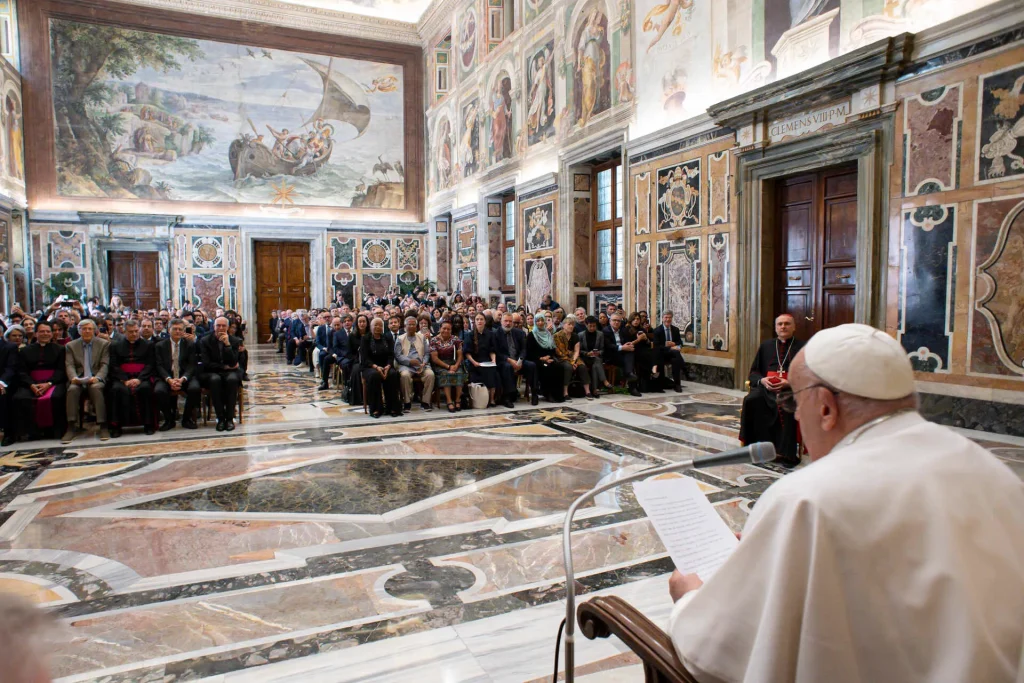From the #BeHuman initiative to #RegenerAction.
In the past two weeks, I have had the immense honor of participating in several incredible encounters and powerful experiences. I met with the pope. Subsequently, I have followed activists, scholars, educators, theologians, economists, entrepreneurs, business people, diplomats, philosophers, farmers, young people, innovators, and scientists who emphasize the urgency of rethinking and rebuilding a new model of production, consumption, and development, starting from the bottom, from the essential values of humanity. Now, I digest and process the endless stimuli, provocations, inspirations, and shared ambitions.
Transformative experiences have profoundly impacted my perspective on food security and ecological regeneration. Among these, an encounter with Pope Francis at the World Meeting on Human Fraternity stands out. Being invited to contribute to the discussions on our food systems’ future was humbling and enlightening. The urgency of addressing the poly-crisis we face today became starkly apparent, leading to three critical reflections:
Food Security and Climate Crisis
Our discussions reinforced the understanding that food security can only be tackled together with the climate crisis. Pope Francis’s encyclical “Laudato Si” was a cornerstone of our dialogue, emphasizing the necessity for an integral ecological development model. This approach requires a unified political strategy that includes environmental regeneration, human Health, social dimensions, cultural heritage preservation, and inclusive economic development. The interconnectedness of these elements is vital for creating resilient and sustainable food systems.
Regeneration from the Roots
Real regeneration must start from the roots — literally and figuratively. We must prioritize soil health and cultural education. By instilling a deep respect for our natural environment and cultural traditions, we can address global challenges at their core rather than merely treating the symptoms. This approach calls for educational innovations that foster environmental stewardship and culture, ensuring that future generations understand the intrinsic value of their heritage and natural resources.
Awareness and Technology for Change
Our final discussions highlighted the role of awareness and consciousness in driving change. Technological advancements, including artificial intelligence, must be harnessed to enhance our ability to measure and understand the impacts of our actions. This knowledge empowers us to make informed decisions and take positive steps towards sustainability. Awareness campaigns and educational programs are essential for fostering a culture of responsibility and proactive engagement with our environment.
RegenerAction: Imagining, Believing, and Acting
Following the World Meeting, I participated in RegenerAtction, a retreat guided by the mantra: IMAGINE, BELIEVE, ACT. This experience was transformative, allowing us to envision a world where the soil thrives, marginal areas flourish, and traditional wisdom is cherished.

